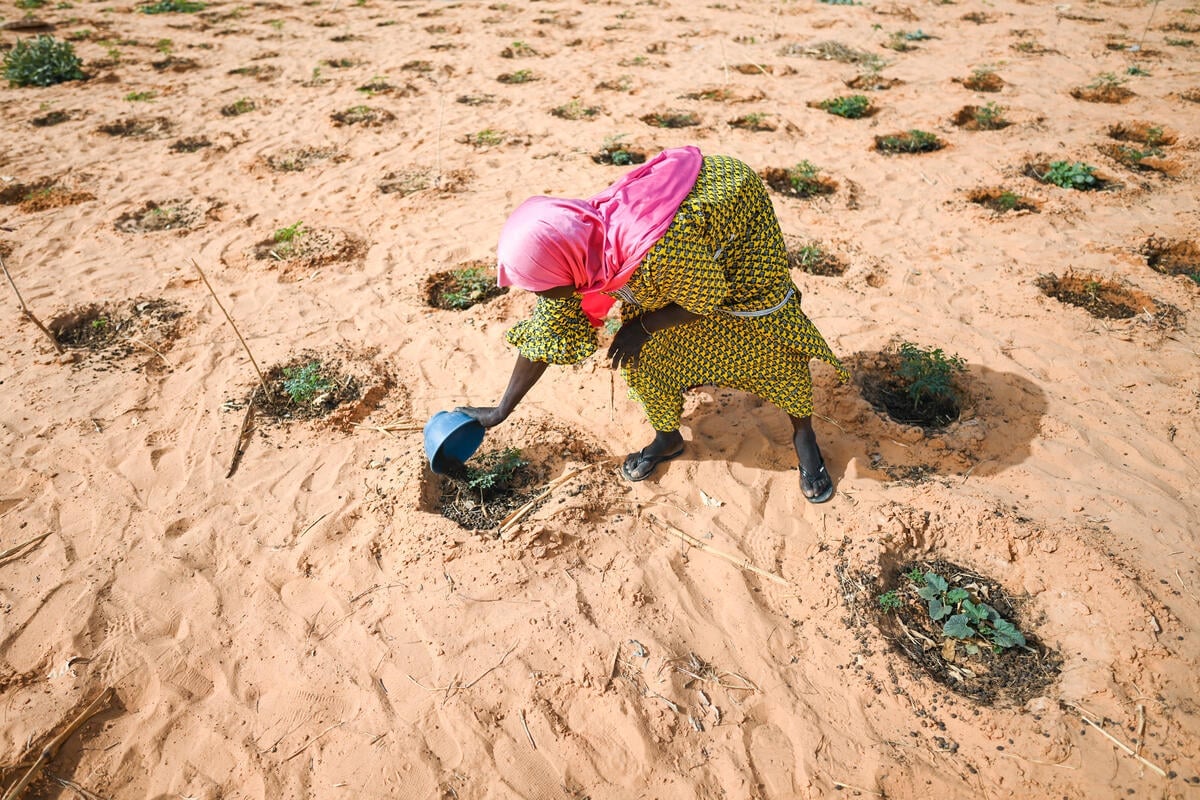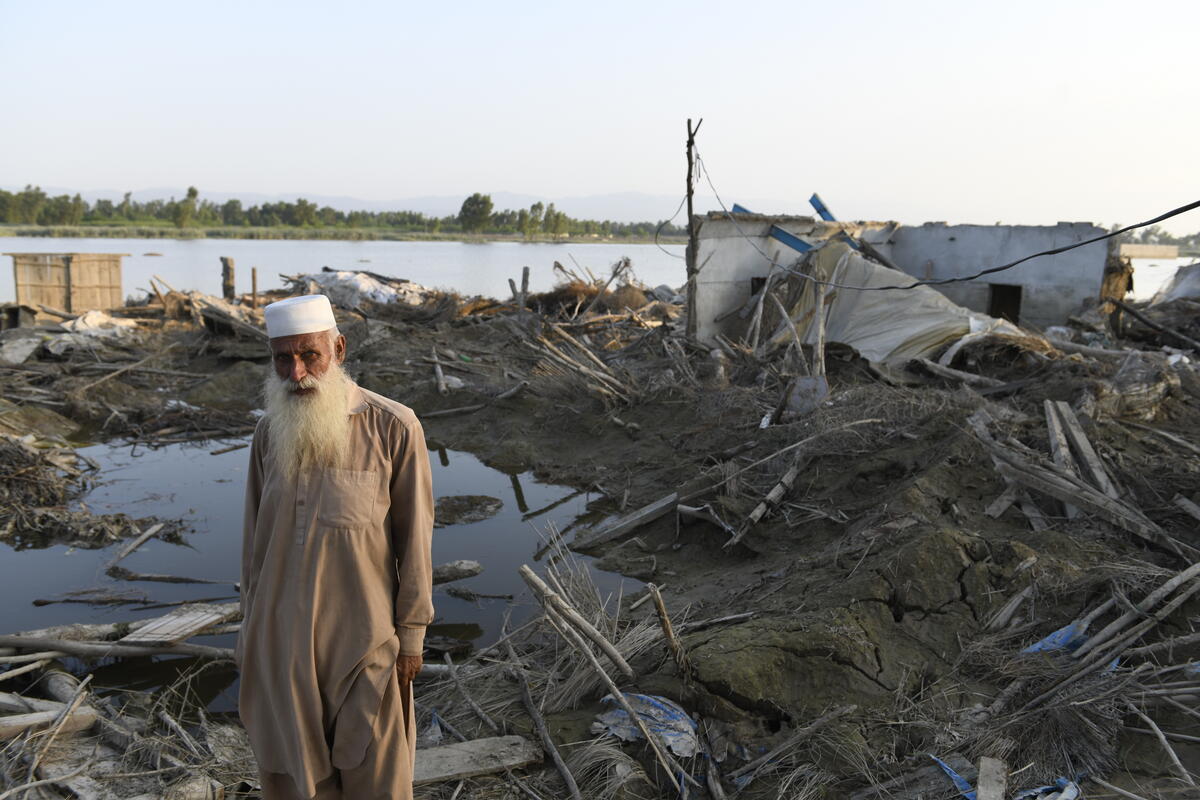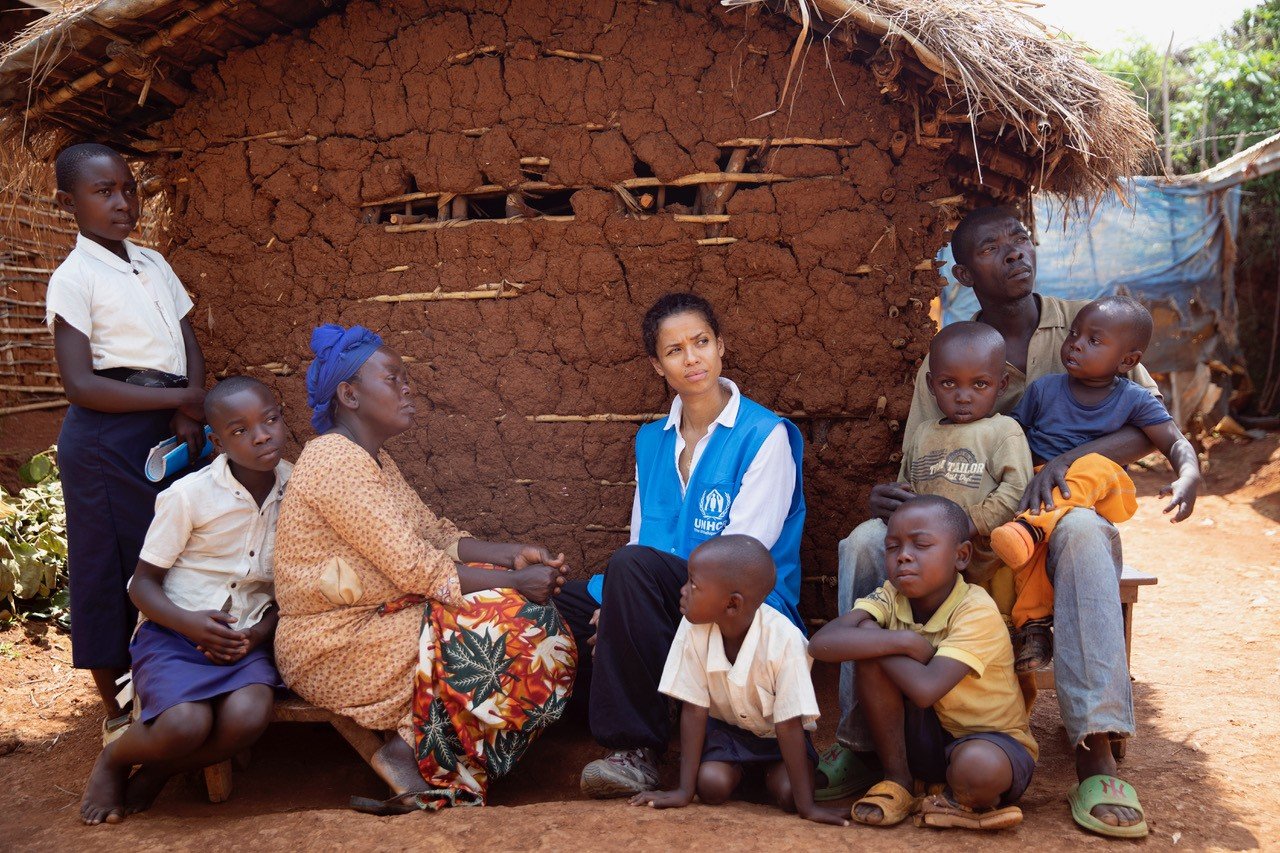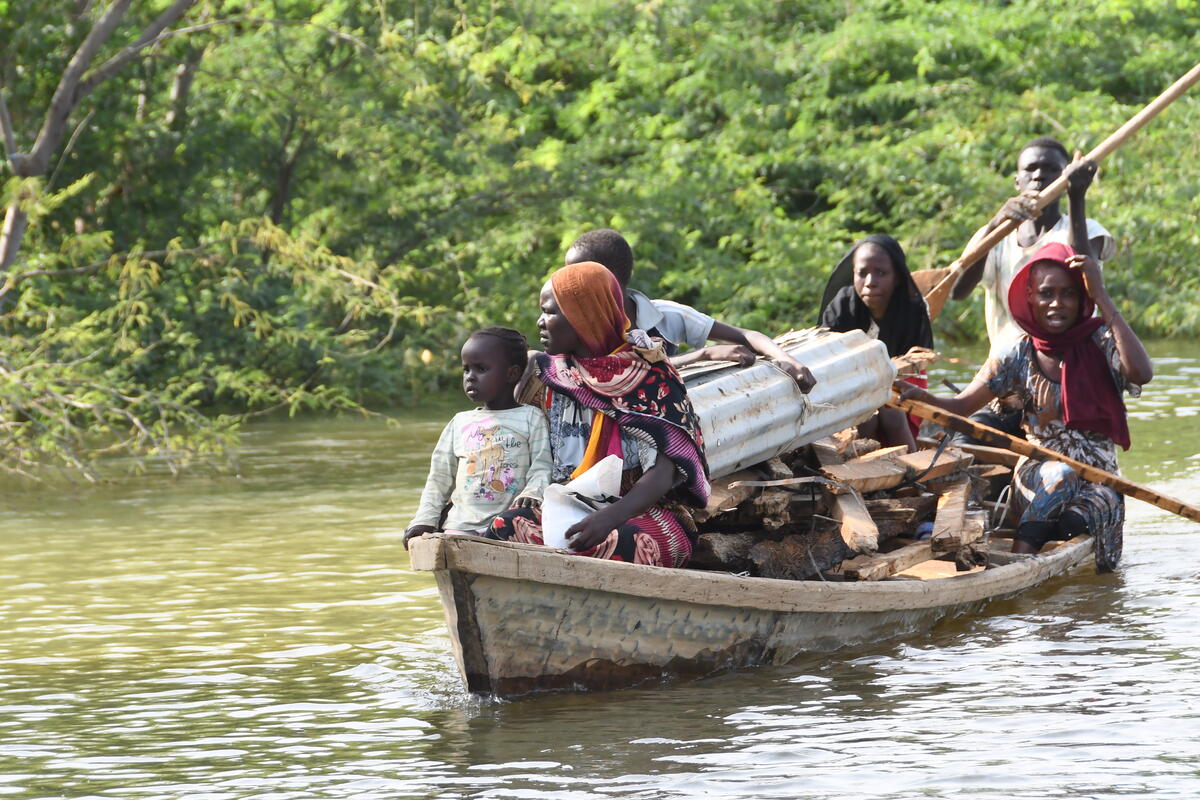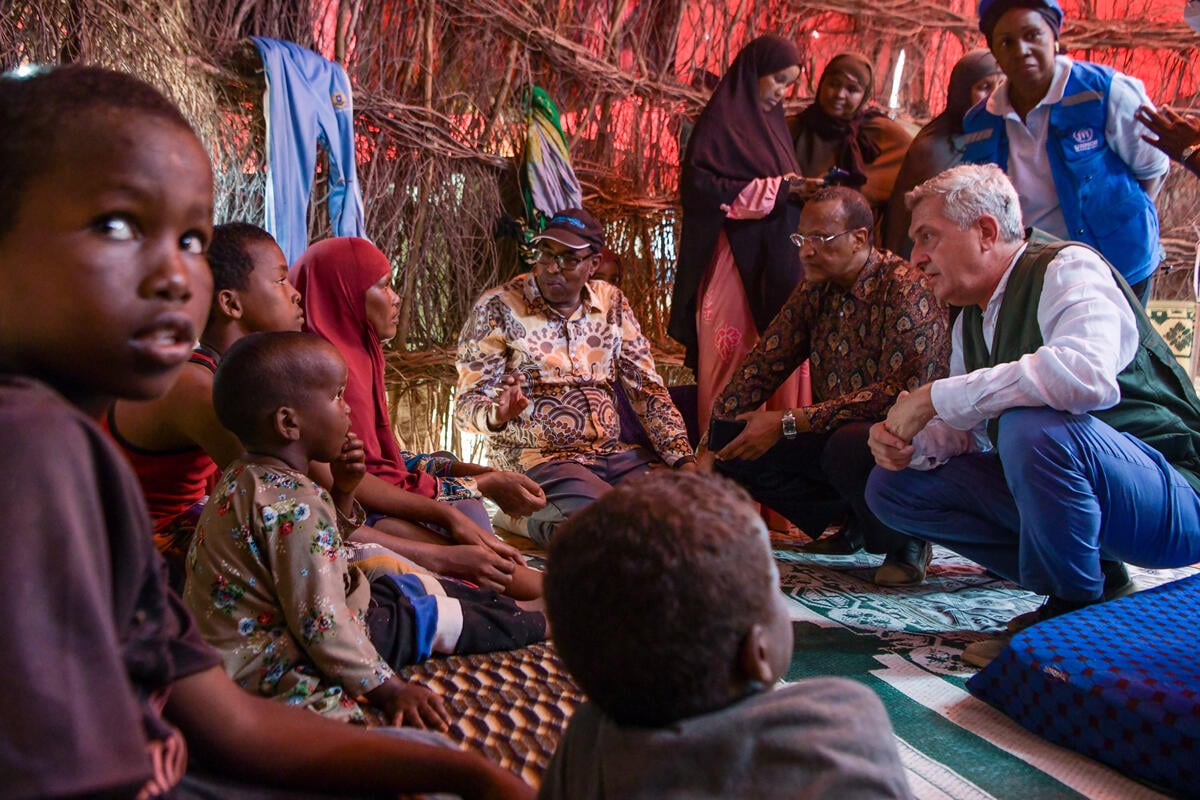'We are the lucky ones'
Mihret, 25, will never forget that day in November 2020 when her entire world was upended after violence erupted in her hometown in Tigray.
“It was like watching a documentary on television, except it happened in real life,” she says.
Her slight frame belies her confident personality and steely resolve to make it in the harsh environment that she now calls home – Tunaydbah refugee settlement in eastern Sudan.
“I thought I wouldn’t get out alive. I was really scared,” says the former lecturer and civil engineer who was on campus when commotion and confusion ensued as sounds of gunfire and bombs rent the air.
“When I left the office, I saw crowds everywhere. Everyone was running to save themselves and their children. The roads were filled with people pushing each other,” she adds.
“I thought I wouldn’t get out alive. I was really scared.”
She ran to her aunt’s house and waited for nightfall before making their escape. Together with her aunt and cousins, they hid in the bush for days without food or water as it was too dangerous to be out on the open road. They eventually made it across the border into Sudan after walking long distances over harsh terrain.
Like the tens of thousands of Ethiopians who have fled to Sudan, Mihret barely carried anything with her. But she counts herself lucky as she managed to escape with her life and has her younger brother, aunt and cousins with her in Tunaydbah.
“We are the lucky ones,” she says. “So many people, our friends and our families died back there and on the way. Their bodies weren’t even buried. I am happy we survived.”
Since she arrived in the settlement, she has been struggling with the memories of the atrocities she says she saw and are still fresh in her mind.
“Children and mothers were raped. Pregnant mothers gave birth and on the same day, they had to run away on foot,” she recalls, her tears finally giving way. She clasps her hands firmly together to steady them.
Her pain is tangible, but she seems determined to overcome her trauma and rebuild her life. She adds that she finds some solace through work and she is using her skills to volunteer as a site supervisor in the camp, working with UNHCR, the UN Refugee Agency and other agencies like the International Humanitarian Partnership (IHP) to oversee the setting up of a mobile office base in the settlement and the construction of various facilities like latrines.
UNHCR and partners are providing basic services like food, shelter, healthcare, water and sanitation to refugees in the settlement, while also identifying ways to assist them set up businesses and earn some income.
Majority of refugees here are children and youth, like Mihret, who have some skills and academic qualifications.
Back home, Mihret studied construction and graduated with a diploma and then went on to study for a degree in Construction Management. She plans to get a master’s eventually.
“I love engineering,” she says. “Since I was a child, I loved making things and my dream was to be a doctor, an engineer or a pilot.”
On most days, Mihret is up by 6 am and works until 2 pm, checking the generators at the mobile office, the water tanks and general construction in the settlement. Later in the afternoons, she volunteers at the health clinic, assisting refugee mothers to get medical services for themselves and their children.
“I do it because many in my community, especially the mothers, don’t understand the language here. They need help and I want to help them,” explains Mihret who speaks Arabic, the official language spoken in Sudan.
“Now we know how important [peace] is because we have lost it.”
When she is not at work, she spends time with her aunt and newly acquired friends in the settlement, making traditional Ethiopian coffee and reminiscing about home.
“We were living a good life back home. I miss hanging out with my friends, the freedom to move around and to communicate,” she says.
Despite everything she has been through, she is hopeful that things will get better.
“God tells us not to lose hope,” she says, squinting at the midday sun.
She adds that she will continue working and helping her community until the day she can return home when there is peace.
“Before, we didn’t know the value of peace but now, we know how important it is because we have lost it.”









